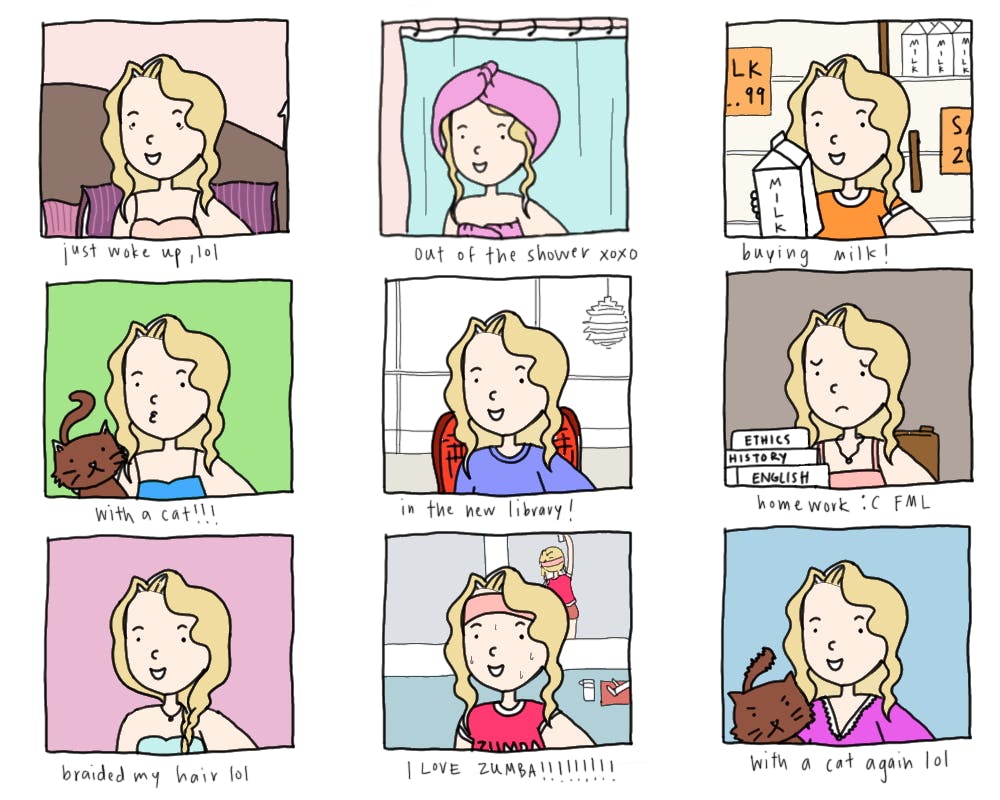Even with trends like “Selfie Sunday” and “Throwback Thursday” (#tbt) increasing in popularity and 130 million active Instagram users uploading 45 billion photos each day according to Instagram’s press page, many students don’t think highly of the avid selfie-taker.
“There’s a right time and place to do a selfie,” freshman Isaiah Ragasa said. “Not random in the supermarket: ‘By the produce, selfie!’ or ‘Oh! I’m in the restroom, selfie!’”
In a recent study, the Birmingham Business School in the U.K. found that although sharing selfies and Snapchatting between close friends increased their friendship, sharing excessive amounts of information on social networking sites can degrade relationships between acquaintances and close friends over time.
According to the study, the selfie-taker oversteps the boundaries of social norms for self disclosure.
“Increased frequency of sharing photographs of the self, regardless of the type of target sharing the photographs, is related to a decrease in intimacy,” the study said.
When people share personal information to an excess on Facebook, Twitter and Instagram, it can cause tension between them and their followers or friends.
Many people don’t have a close relationship with everyone who they are connected with on social networking sites. It’s the disclosure of too much personal information in a stranger to stranger relationship that causes tension.
Posting in moderation is the key to avoid becoming the annoying selfie-taker.
“Selfies are okay, but they have to be limited, don’t overdo them,” Ragasa said. “Maybe once in awhile post them on Facebook, but not every day.”
Students feel the discomfort the study suggests when they see peers’ selfies.
“For one thing it’s just weird,” Ragasa said. “Couldn’t you ask someone to take the picture?”
Freshman Victoria Traudt shares the same opinion.
“I don’t take selfies very often, only because I think it’s weird if you constantly upload pictures of just yourself instead of you with your friends or you doing stuff,” she said.
Traudt believes vanity plays a role in the amount of selfies a person uploads.
“They probably want other people to compliment them … like telling them how pretty they are, how pretty their hair is, or how much they love them or how much they look up to them,” Traudt said.
Freshman Erica Watt agrees.
“(Selfies) have a negative connotation,” Watt said. “It can come off as self-centered.”
Being self-centered isn’t the only reason selfies are so popular. Many students could be copying their peers.
“Other people do it, so they do it,” said Ragasa.
Although selfies don’t do harm among close friends, they do blur the lines of self-disclosure among acquaintances, which cause followers and friends to think less of avid selfie-takers.
Three apps to take better selfies:
CamMe: CamMe allows users to take photos of themselves without touching the phone, thereby avoiding the awkward extended arm shot.
Facetune: Facetune enhances photos so users can achieve magazine-like perfection on their phone.
Everyday: Users take a selfie once a day and the app turns the pictures into a video.








